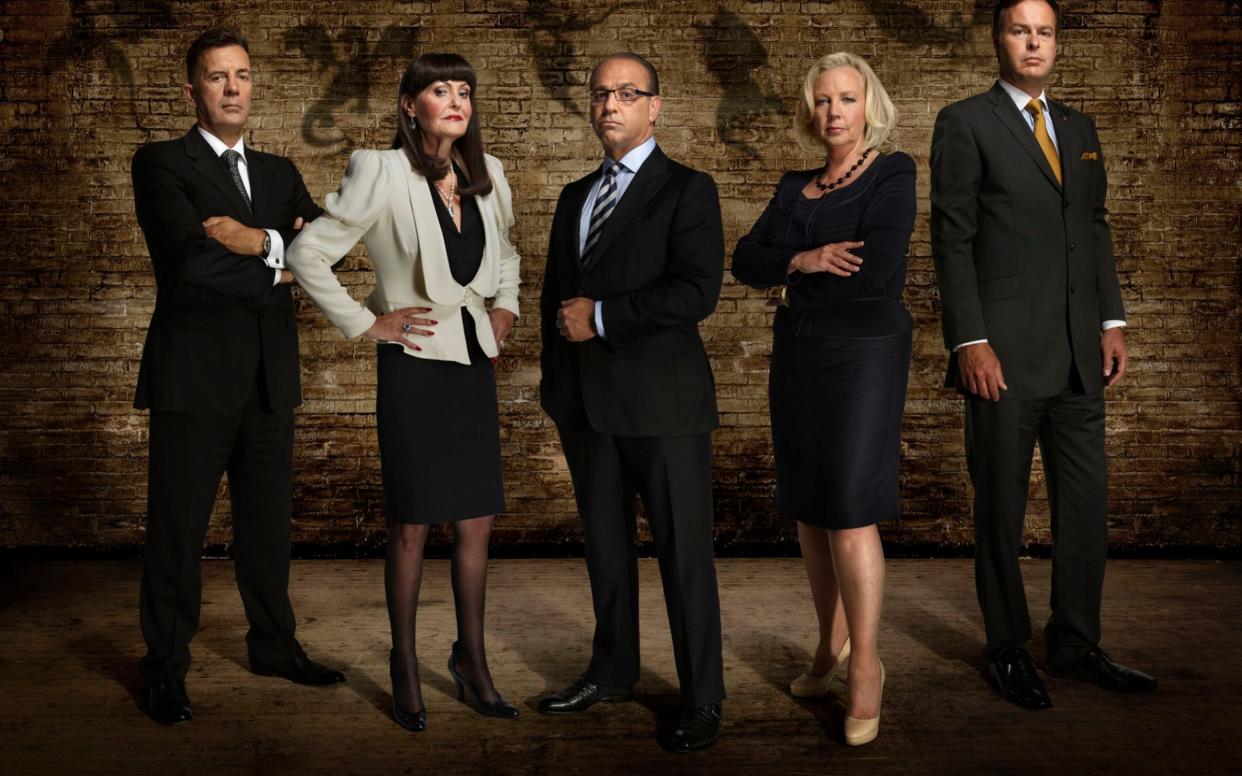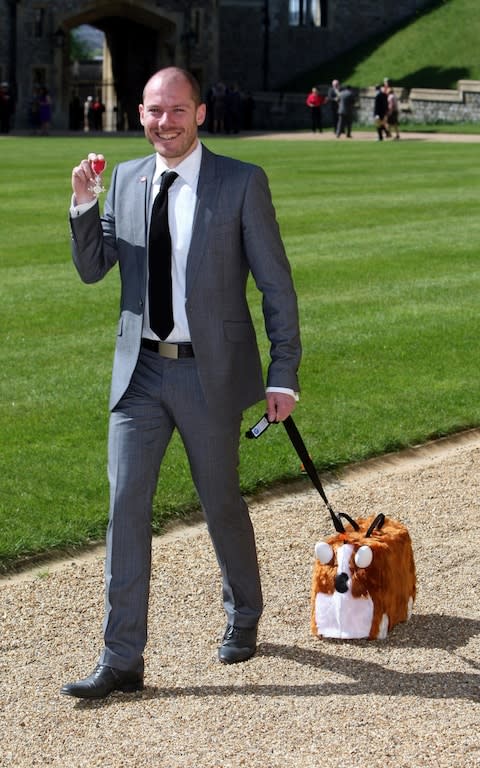Dragons' Den investments perform worse than normal start-ups, research shows

Since 2005 the multi-millionaire panelists of Dragons' Den have been regarded by many as the epitome of shrewd deal-making.
But a new analysis which compares the performance of successful contestants on the show against a random sample of start-ups appears to call into question the Dragons business nous.
In fact, the research suggests that entrepreneurs who secure investment from the likes of Deborah Meaden and Peter Jones tend to perform worse than equivalent sized businesses which manage to raise finance elsewhere.
Published yesterday, the new figures from the investment platform Syndicate Room may help future contestants relax as they pitch their business plans to the Dragons, an experience notorious for reducing budding capitalists to quivering wrecks.
The company looked at the performance of investments made by the Dragons in 2011 and 2012, and compared them with a random sample of more than 500 start-up business which raised money elsewhere at around the same time.
While the value of the businesses favoured by one or more of the judges grew at an average rate of 16 per cent a year until the end of 2018, the average growth of the random group was far more impressive, that of 28 per cent a year over the same period.
The rules of the Den oblige the Dragons to use their own money if they want to invest in a contestant’s company.

As well as Meaden and Jones, the panel at the time comprised Duncan Bannatyne, Theo Paphitis and Hilary Devey.
Companies they financed during the period included the designer of a hands-free pint-puller and the manufacturer of portable lavatories.
Gonçalo de Vasconcelos, chief executive of Syndicate Room, told the Sunday Times: “Their return was still pretty good, but it's below the market average.
"If you had chosen a random selection from this cohort, then you would have done better than the Dragons."
Hosted by Evan Davies, the show boasts a number of high-profile successes, such as the founder of Raggae Reggae Sauce Levi Roots, who is now a millionaire having persuaded the Dragons to invest £50,000 in his business in 2007.
However, the judges have also faced criticism for failing to spot the potential of a number of businesses that went on to enjoy huge success with alternative funding.
These include the companies behind Trunki rideable suitcases for children and the Tangle Teezer hairbrush design.
Shaun Pulfrey, who pitched the Tangle Teezer to the Dragons in 2007, was told by Bannatyne, who owns a chain of health clubs, that he would never make any money from it.
However, the products made sales of £21.4 million in 2017 and have been warmly endorsed by Victoria Beckham and Cara Delevingne.
Meanwhile Rob Law, who invented the Trunki suitcase, received short shrift from Paphitis, who owns the homeware giant Robert Dyas, pulled the handle off one of the cases.
The products are now stocked by more than 2,500 retailers including Boots and john Lewis, with the company making sales of more than £9 million last year.

The new research was based on data from Beauhurst, which specialises in analysing private companies, but includes only those which raised at least £25,000, which is lower than the common investment on Dragons' Den, which is of between £50,000 and £100,000.
It follows research published in the Sunday Telegraph in 2015 which found that approximately half of investments made on the show fall through once the cameras stop rolling.
The study was conducted by a previously unsuccessful applicant to appear on the show, Tiger Mobiles, which found that of the £13 million pledged between series one and 11, only £5.8 million was ever invested.
Deborah Meaden defended the show’s record at the time, pointing out that the exposure afforded by appearing in the den meant contestants often receive alternative offers and then turn down the original investment promised by the Dragons.
One such example was Amer Hasan, who entered the Den in 2013 pitching for investment in a price comparison website for booking taxis called Minicabit.
He accepted £75,000 from Meaden and Jones in return for 35 per cent of his firm, but the agreement collapsed after Hasan was made a better offer.
He later said: “We dodged a bullet really.
"The subsequent funding round ... gave us a lot more money in return for a lot less equity."
Responding to the new research, a spokesman for the BBC said it was “misleading” to judge the performance of Dragons' Den based on investments pledged over just one year.
"It doesn't accurately reflect the guidance and advice small businesses receive from the Dragons,” he added.
The show is one of the corporation’s biggest rating successes.
It has been nominated for two Bafta and one Royal Television Society awards.
Sign up for your essential, twice-daily briefing from The Telegraph with our free Front Page newsletter.

 Yahoo News
Yahoo News 
